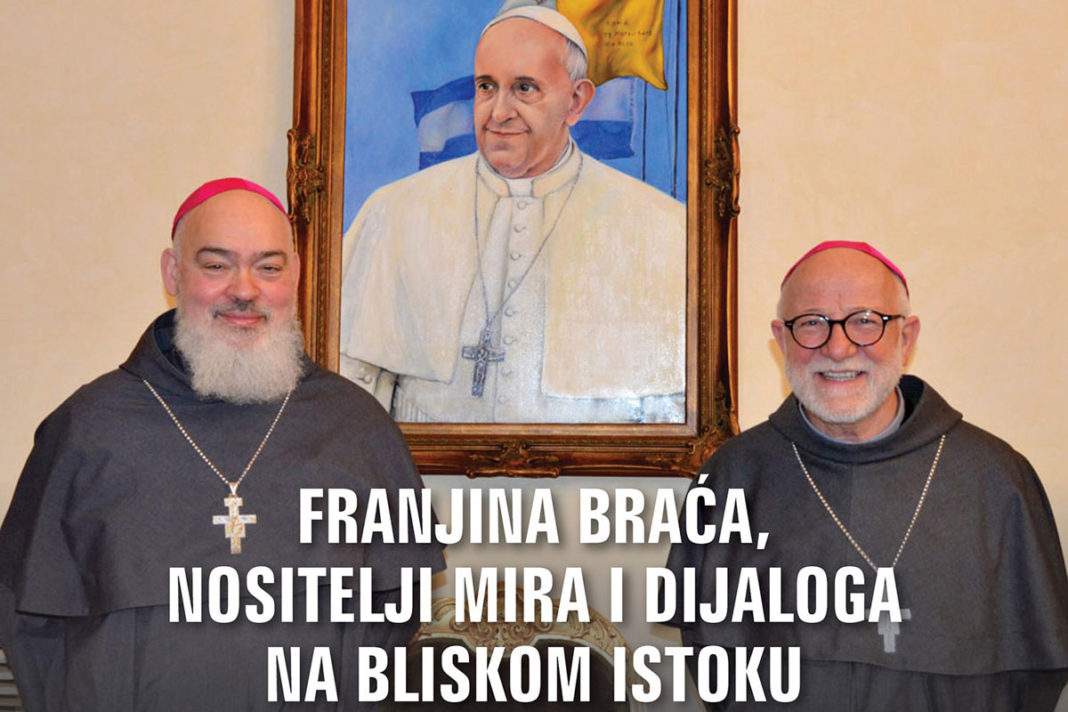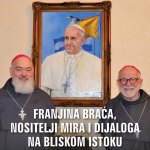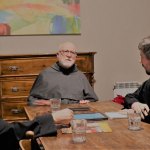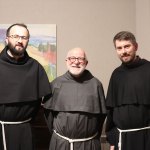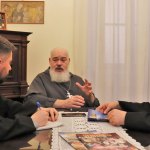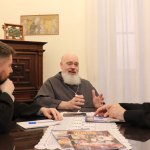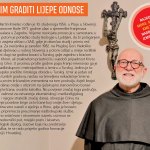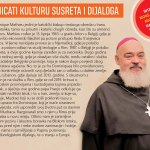On the occasion of their episcopal appointments, our two new archbishops, Friars Martin KMETEC and Dominique MATHIEU, gave an interview to the Croatian monthly magazine Veritas – Glasnik sv. Antuna Padovanskoga [Veritas – Messenger of St. Anthony].
The two prelates had a very cordial conversation with the correspondents of Veritas. They spoke about their missionary vocation; their experience in the Middle East; ecumenical and interreligious dialogue; Pope Francis’ visit to Iraq; the life of Christians in this region; the challenges the archbishops face as the new pastors of their dioceses; their passion for languages; and other interesting topics.
Eight centuries ago, in the midst of constant conflict, St. Francis of Assisi wanted to meet with the Islamic ruler of Egypt. Although this was a very risky venture whose outcome was uncertain, Francis humbly and courageously went forth and the Sultan acknowledged the goodness of his gesture. Inspired by St. Francis, Pope Francis, also wants to go to the Middle East, to encourage the Christians living there, to meet today’s Islamic leaders and to promote human fraternity. Franciscans have been present in that region for centuries. Therefore, it is not surprising that the Pontiff chose them to head some of the dioceses there, namely, Beirut, Jerusalem, Smyrna and Teheran.
The Most Reverend Martin KMETEC, Archbishop of Izmir (Smyrna), Turkey, and the Most Reverend Martin Friar Dominique Archbishop of Tehran, Iran, and the friars of the Provincial Custody of the Orient and the Holy Land, are all well aware of the situation in that historical and geographical region. During the interview, they stated that that Pope Francis’ visit to Iraq, his 33rd apostolic journey, is not only very important for that country, but it is an encouragement and a sign of hope for Christians throughout the Middle East. At the same time, it is a step forward in promoting human fraternity with our Muslim brothers and sisters.
The two archbishops spoke about the importance and challenges of ecumenical and interreligious dialogue. Even though it is a worthwhile pursuit, explained Friar Dominique, “in the Near East, the powerful sense of belonging to one’s own group makes intermingling difficult and keeps segregation alive.” Despite this, ecumenical and interreligious meetings do take place, which, as Friar Martin observed, “are very positive, but unfortunately often hindered by problems and political-social tensions” . Friar Martin expressed his satisfaction that the friars of the Custody of the Orient and the Holy Land have contributed a lot to promoting dialogue in this region.
Answering the question of how they recognized their missionary vocation, both of them affirmed that they already felt it long before they departed. Friar Martin said that when he was a student he had “dreamed of going to other countries, not for an adventure, but to proclaim Christ.” His desire for mission reached its peak when, six years after his priestly ordination, he was reading Fraternus Nuntius and saw an invitation from the then Minister General, Lanfranco SERRINI, to go and help the friars in Lebanon. On the other hand, when Friar Dominique completed his service in Belgium and Central Europe and asked to be sent to Lebanon. He too, testified that from his childhood, he had always been “fascinated by new worlds and once I became a religious, I almost always felt affinity with the Islamic world.”
They went on to discuss the situation in their dioceses. Smyrna (Izmir) was an ancient seat of the Church, led by St. Polycarp, the famous bishop and martyr of early Christian times. At present, the diocese has about five thousand Catholics coming from different places. There are also many migrants from Syria and other countries. The diocese has fifteen priests, both diocesan and religious, who perform pastoral ministry. Friar Martin mentioned that his diocese also has many pilgrimage destinations, such as the places linked to St. Paul (Colossi, Miletus, Ephesus, and Iconium), the house of the Blessed Virgin Mary and other sites.
Friar Dominique reported that his Diocese of Teheran is territorially large with approximately two thousand Roman Catholics. It is a small but important flock, with which we share a thousand-year-old cultural and spiritual legacy, one which encourages us to live together by praying for and helping each other.
Friar Zvonimir PERVAN






